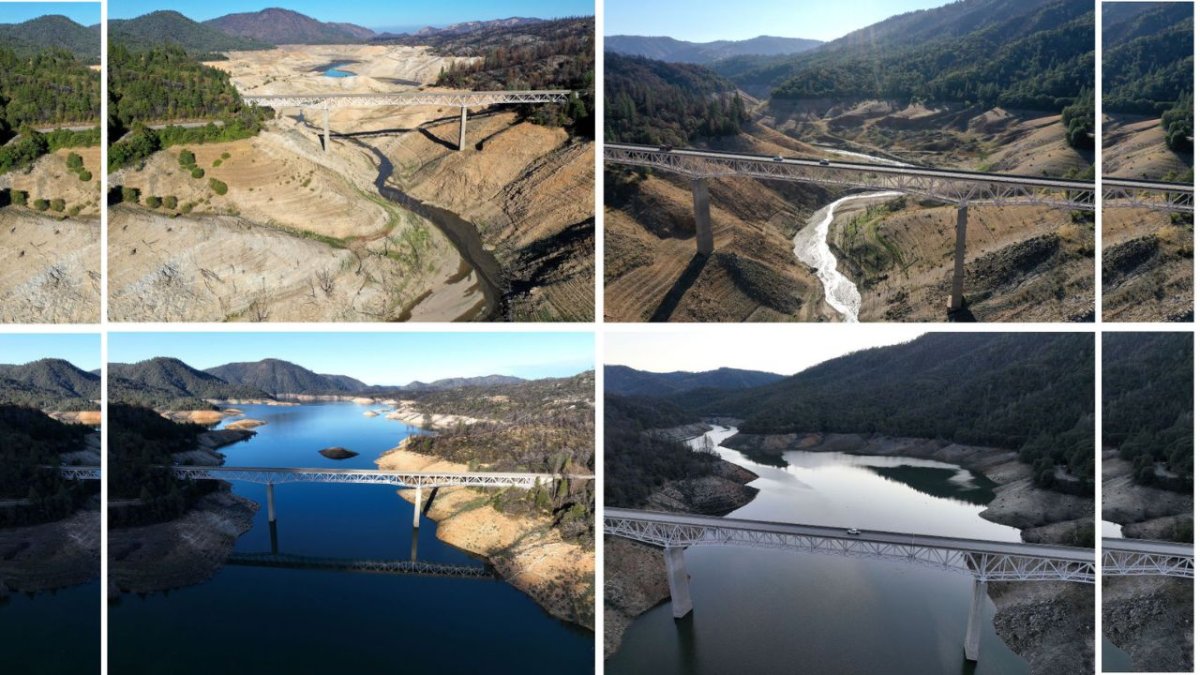The drought that until just three months ago tore through much of the golden state has given way to rivers, waterfalls, lakes and reservoirs full of water.
Getty Images
In California, normally “75% of annual precipitation, consisting of rain, snow, and hail, falls from November through March,” according to the California Department of Water Resources (DWR).
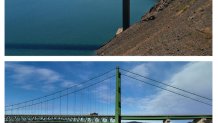
Getty Images
However, for the past three years, the summers have been increasingly hot and the winters historically dry, bringing the territory to a state of extreme drought.
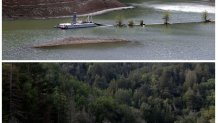
Getty Images
But this year the panorama is completely different after the impact of 19 atmospheric rivers which began at the end of December 2022.
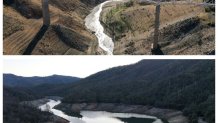
Getty Images
Currently, the water reserves of the reservoir are at 106% capacity compared to the average for this time of year. The photos show what used to be desert areas, now with water flows that hadn’t been seen in years.
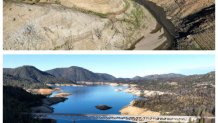
Getty Images
Among them, 12 of California’s 17 largest reservoirs have water reserves above their historical average, including Lake Folsom, and “Lake Oroville is currently at 83% capacity with 2.9 million acre-feet of water,” according to the DWR. .
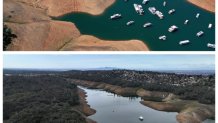
Getty Images
Additionally, the DWR reported on Monday that the snow cover covering the state’s sierras and mountains “is one of the deepest on record, easing the drought,” but also raising concerns about the floods once it melts. .
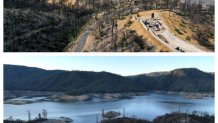
Getty Images
“This year’s severe storms and flooding are the latest example of California’s increasingly extreme weather,” DWR Director Karla Nemeth said. “After the driest three years on record and the devastating effects of the drought on communities across the state, the DWR quickly responded to the flooding and predicted the next snowmelt. We have provided flood assistance to many communities that only a few months ago were facing severe effects of drought.
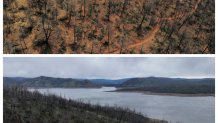
Getty Images
In fact, this year’s storms have wreaked havoc on the state, including flooding in the community of Pájaro and communities in Sacramento, Tulare, and Merced counties.
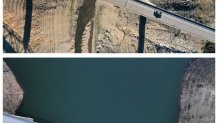
Getty Images
However, the DRW stands by the call to conserve water statewide, as “long-term drought conditions in the Colorado River Basin will also continue to affect water supplies for millions of Californians.”
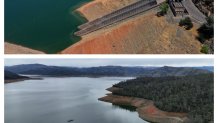
Getty Images

